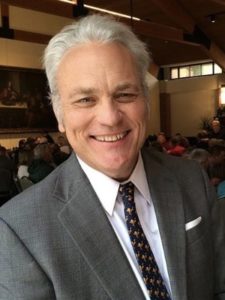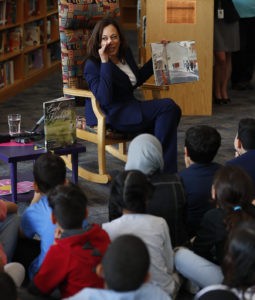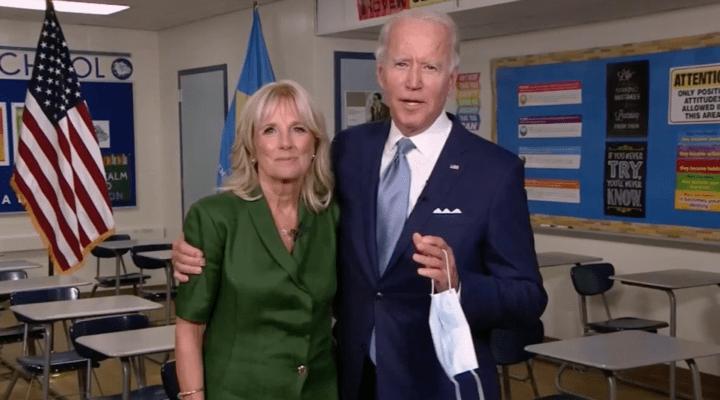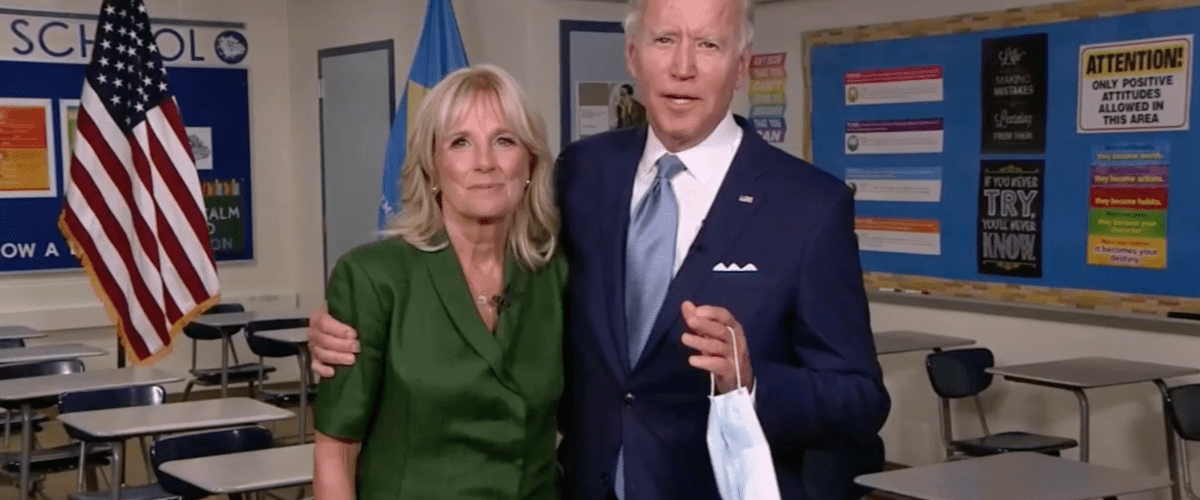With the impending change of administrations in Washington, public education advocates across the country have taken to social media to express their joy in the inevitable departure of Betsy DeVos as secretary of education. As one of the most consistently polarizing figures of the Trump administration — and as someone perceived by educators as a foe more than an ally — DeVos has presided over efforts to expand government funding for private religious schools and charter schools by redirecting funding from public education.
Within the faith community, there’s likely not a stronger advocate for public education than Charles Foster Johnson, who leads a coalition called Pastors for Children. This movement that began in Texas has spread to other states, mobilizing pastors and faith leaders to advocate with their legislators for more funding for public schools, not less. Johnson and his allies have gained national attention by making a case for why people of faith should care about public education.

Charles Foster Johnson
But what comes next? In an interview with Baptist News Global, Johnson reflected on what he anticipates could happen in a Biden administration.
You’ve been a staunch advocate for public education across the nation, and you’ve made this case from a faith perspective. With that in mind, what would be your No .1 hope for a new administration supporting public education?
Of the many corrections we need from the new presidential administration, the single most important one is appointing a secretary of education who actually believes in the American tradition of universal education, provided by the public, for all American children. This is essential in restoring the calling to teach to the God-given moral stature it deserves. Thankfully, President-elect Biden has made public statements that communicate an understanding of this need. He made an oft-repeated promise on the campaign trail that he would appoint a public school teacher to the cabinet post.
What qualifications should be important for a new secretary of education candidate?
Actual tenure as a classroom teacher. This fundamental, concrete incarnational experience is key to building solidarity with the millions of American public school teachers serving our children. Teachers are deeply demoralized after four years of an education secretary who has sought, in her every act and utterance, to turn public education into a private enterprise for financial gain.
You have documented for several years the threat to funding for public education by various forces that want to siphon off money for charter schools and private school vouchers. How much will that threat be mitigated with this new administration?
“Traditionally, vouchers are the privatization model of choice for Republicans (rural Republicans excepted) and charters are the privatization model of choice for Democrats.”
I’m not sure. Donald Trump and Betsy DeVos pushed private school vouchers. That is unlikely from the Biden administration. What is more of a threat is continued expansion of charter schools that, basically, are publicly underwritten private schools due to their independent private ownership. Traditionally, vouchers are the privatization model of choice for Republicans (rural Republicans excepted) and charters are the privatization model of choice for Democrats.
Accordingly, the standardized testing racket so enshrined in No Child Left Behind and Race to The Top must be dismantled. Why do we have them when teachers, parents, community leaders and children all hate them? Here’s why: corporate backers of privatization want to measure poor children rather than treasure them. Let’s take the billions we are squandering on burdensome and punitive assessment and re-channel that money back into athletic, musical, artistic and vocational programs that have been so severely cut because of them in the first place.
How important is it that Jill Biden is an educator herself? Do you think her career experience will influence the policy of this administration?
There is no question that Jill Biden will have significant influence on her husband’s public education policy in the new administration. Her experience as a public school teacher has already shaped the direction of the conversation. The witness of a classroom teacher, who molds and shapes our children at great sacrifice, carries tremendous moral force. This is an influence that should be brokered more fully in the policy arena.

Kamala Harris reads to students at Miller Elementary School in Dearborn, Mich., Monday, May 6, 2019. (AP Photo/Paul Sancya)
And what role might Vice President-elect Kamala Harris play in education policy?
We feel more confident about the Biden administration’s commitment to public education under the leadership of Vice President-elect Harris. As a senator, she gave her maiden speech on the Senate floor to oppose the nomination of Betsy DeVos, insisting that the secretary of education should be an experienced educator. She has been a vocal supporter of raises for teachers and increased funding for K-12 public education. As attorney general in California, Harris launched an investigation into a for-profit charter school, citing concerns about false advertising, misleading information and reckless spending. Her understanding of the dangers of charter schools may guard the administration against the Democratic tendency toward viewing charter schools as a solution to public education problems.
What about all the Betsy DeVos hires in the Department of Education who have advanced her agenda? Do you anticipate a house cleaning or some other kind of adaptation?
There will likely be a two-pronged approach in the Department of Education: on the one hand, shrill voices for privatization will be terminated. On the other hand, many of these bureaucrats will be relieved to have a boss who actually believes in public schools.
So much of the battle for the vitality of public education seems to happen on the state level, although seriously influenced by national policies. How will the results of this election change anything on the state level across America?
A long hard road is ahead of us. The 2020 elections saw some gains for pro-privatization House and Senate members on the state level. Betsy DeVos was able to amass huge sums of money from her fellow wealthy privatizers to push anti-public education candidates.
“Communities throughout our great nation are now awakened to the attack on their neighborhood schools.”
But, on the other hand, communities throughout our great nation are now awakened to the attack on their neighborhood schools. They are mobilized like never before to protect and defend them. We saw in Texas electoral campaigns fully embracing public education. Politicians of both parties realize that political success is absolutely dependent upon a pro-public education position.
Accordingly, the failure of voucher programs all across the nation is now abundantly confirmed and widely acknowledged. Those state legislators are in for a rude awakening if they push expansion of these failed policies. We saw that in Tennessee.
How can people of faith make their voices heard at this juncture, and why should they?
There is a natural, resonant and harmonious connection between the local congregation and the local public school. At its core, education is a profoundly spiritual enterprise marked by relational dynamics of love. Teaching is a calling that comes from beyond oneself, just like the pursuit of faith. When the congregation in the school collaborates in partnerships of solidarity, the fabric of the community is strengthened and the public good advanced. Faith leaders all over America are coming to this wonderful conclusion and are forging these collaborations with educators. Our children are better for it.
In turn, when the faith leader joins that educator in policy advocacy in state government, they make a dynamic duo that conveys the will of the community they represent. They deliver a testimony and bear a witness that is far more powerful than the narrow interest of the rich people pushing privatization for their own profit.
Related articles:
Trump education pick worries church/state separationists
Federal judge flunks DeVos effort to divert relief funds to private schools
Racism and the evolution of Protestant support for private education


